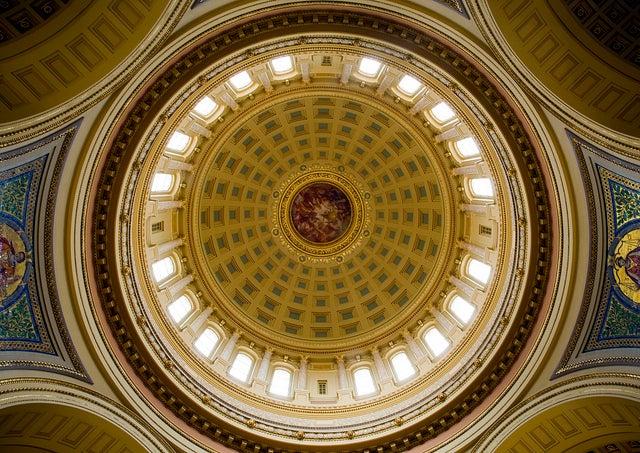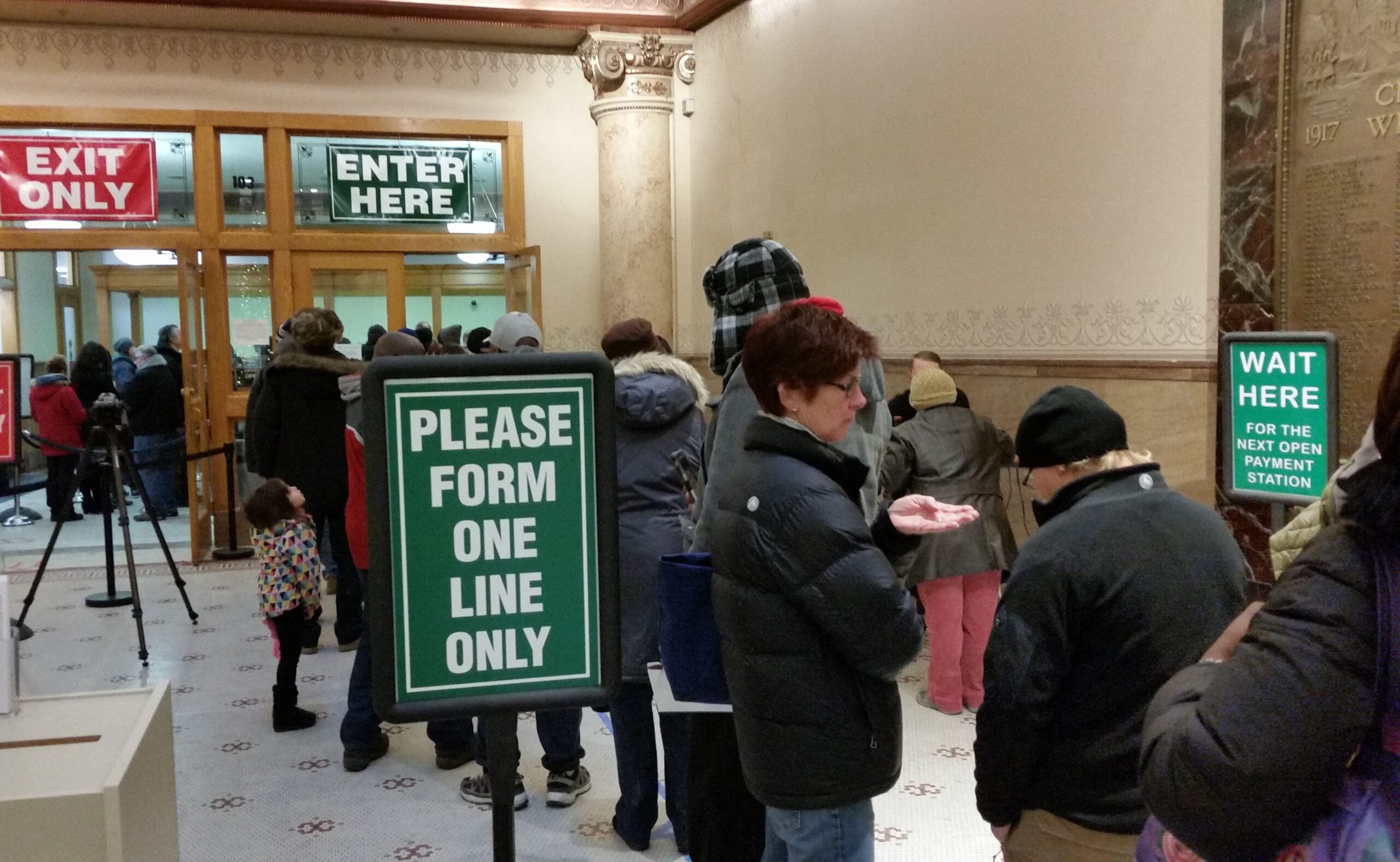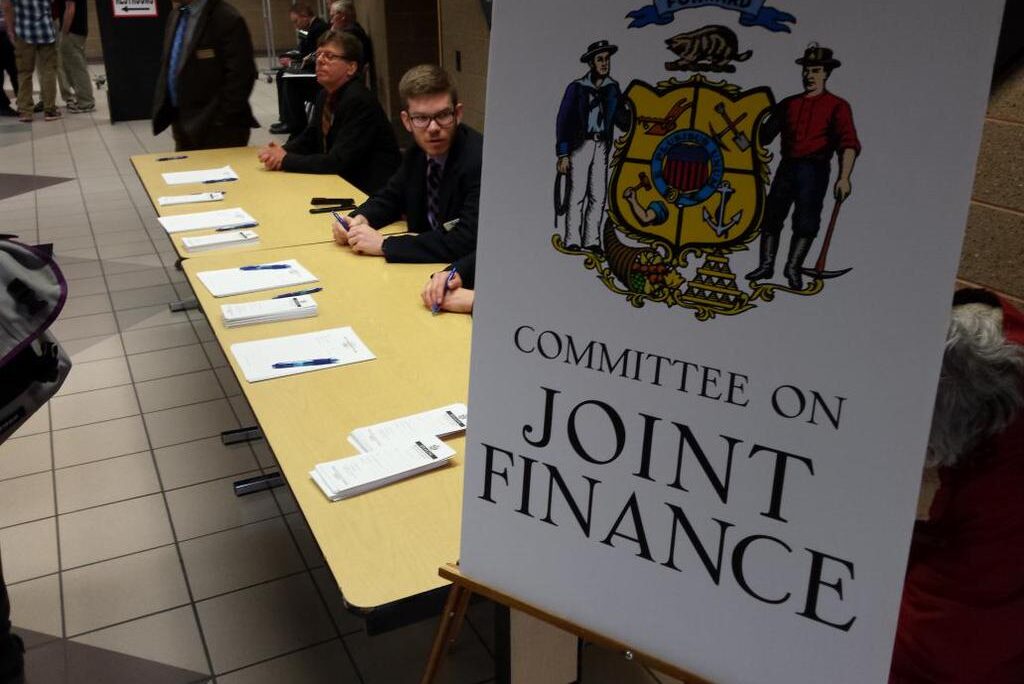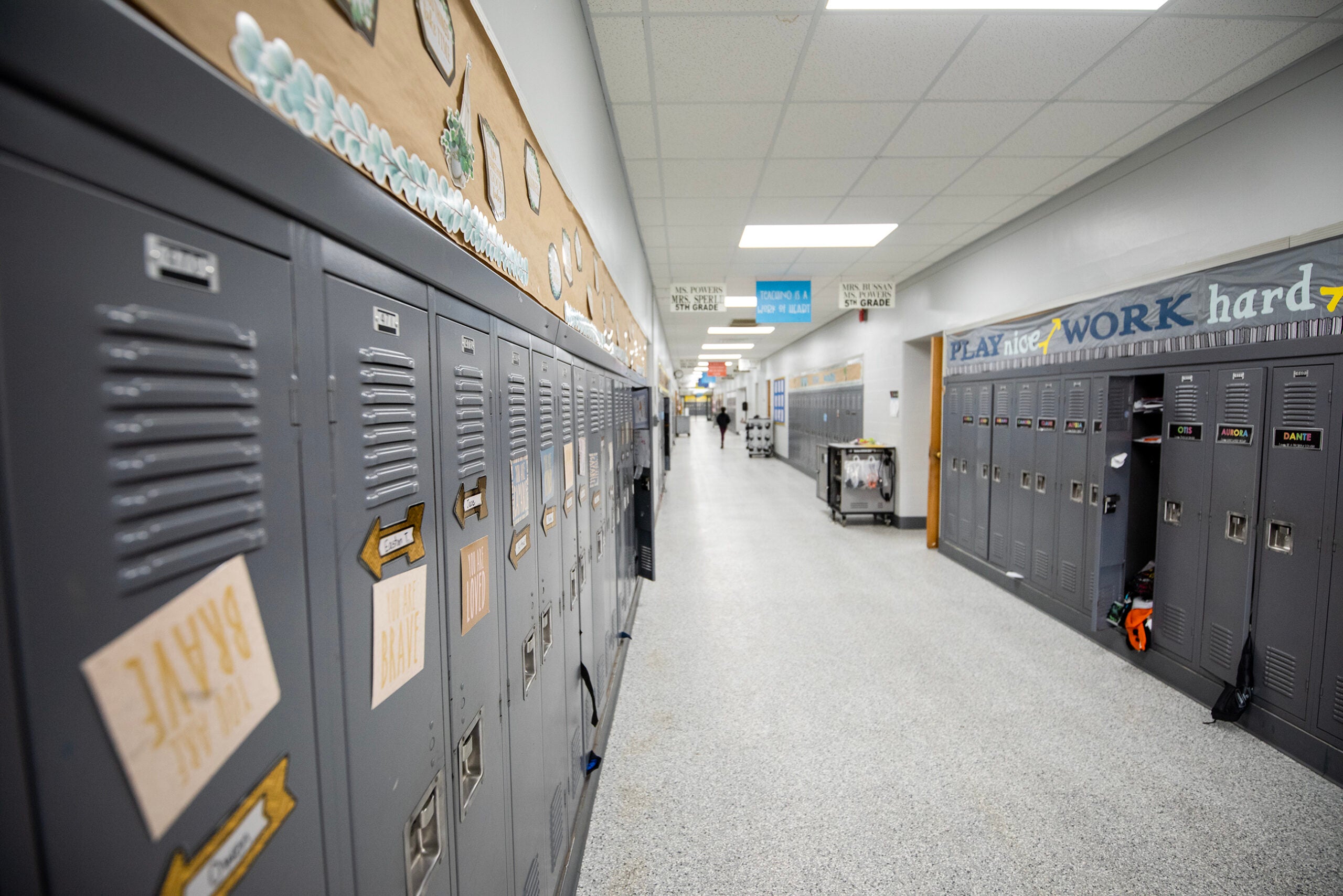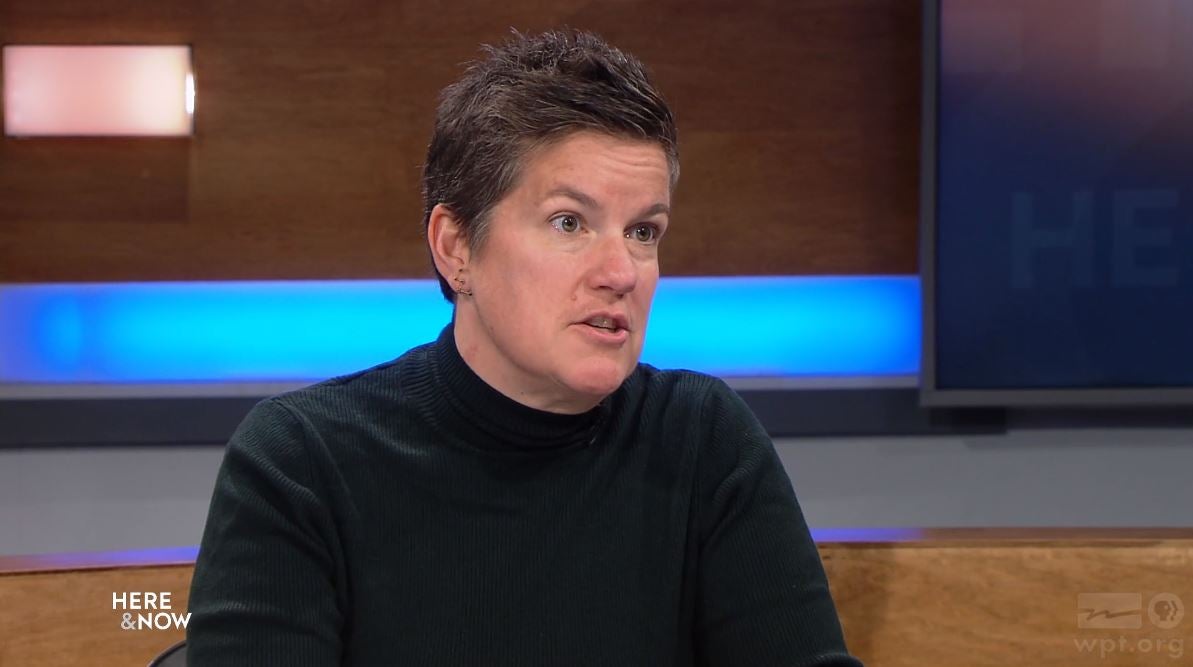A group of Wisconsin nonprofits wants the next state budget to end tax cuts for some farms and manufacturers, and to change the way investment income is taxed in the state.
More than a dozen nonprofits presented their proposal Wednesday in the state Capitol, and while acknowledging their ideas are unlikely to get traction with the Republican majority in the state Legislature, advocates said their ideas may help spur a different conversation about the budget.
“Every biennium there’s this charade that there’s no money available, it’s all spent, and that we have to have cuts, cuts, cuts to things that matter to the people of Wisconsin and would build thriving communities and a thriving state,” said Robert Kraig, executive director of Citizen Action of Wisconsin, a liberal advocacy group.
News with a little more humanity
WPR’s “Wisconsin Today” newsletter keeps you connected to the state you love without feeling overwhelmed. No paywall. No agenda. No corporate filter.
Kraig said the proposed tax reforms would save $890 million. They propose eliminating a manufacturing and agriculture tax credit and increasing taxes on investment income.
The groups encouraged spending those funds on health care, workforce and education programs, including providing free technical school tuition to some high school graduates and older adults returning to school.
“Budgets are about making choices,” said Ken Taylor, executive director of the Wisconsin Council on Children and Families. “Lawmakers can choose to promote the common good, and invest in children and families and in thriving communities or they can choose to help private special interests that rig the system for their own benefit.”
Additional proposals include programs to provide drug screening conversations for high school students across the state, raising wages for home health care workers and creating a large-scale program to replace lead pipes across the state.
Other groups in attendance included the Wisconsin Council of Churches, the Wisconsin Alliance for Women’s Health and the Wisconsin chapter of the National Association of Social Workers.
Wisconsin Public Radio, © Copyright 2026, Board of Regents of the University of Wisconsin System and Wisconsin Educational Communications Board.
